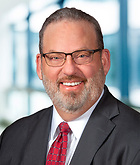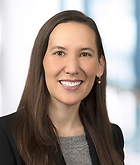Labor and Employment Alert: Department of Labor Issues Guidance on Overtime Exemptions in Colleges and Universities
Earlier this year, the U.S. Department of Labor (DOL) issued “Fact Sheet #17S” on the applicability of the Fair Labor Standards Act’s (FLSA) minimum wage and overtime exemptions for jobs in colleges and universities. The fact sheet summarizes in one place the DOL’s position on white collar exemptions at these institutions, and provides useful guidance on unique positions such as coaches and online instructors. Generally, to be exempt from overtime compensation under the FLSA, the employee must meet a salary level test, be paid on a salary basis, and primarily perform exempt duties.
Teachers
A teacher is exempt if his or her primary duty is teaching, tutoring, instructing or lecturing to impart knowledge as an employee of an educational establishment. If a teacher meets this duty requirement, the salary level and salary basis tests do not apply. According to the fact sheet, professors, instructors and adjunct professors typically qualify for this exemption.
Further, a faculty member who teaches online or remotely may qualify for this exemption because the regulations do not restrict where bona fide teaching may take place, to whom the knowledge can be imparted, or how many hours a teacher must work per week. The fact sheet explains, for example, that a part-time faculty member whose primary duty is to provide instruction through online courses to remote non-credit learners would qualify as exempt.
The fact sheet also points out that a teacher does not become non-exempt merely because he or she spends a considerable amount of time in extracurricular activities (such as coaching athletic teams or supervising student clubs), provided the primary duty is teaching.
Coaches
Athletic coaches employed by higher education institutions may qualify for the teacher exemption. The fact sheet explains that teaching may include instructing student-athletes in how to perform their sport. The amount of time the coach spends instructing student-athletes in a team sport is a relevant, but not exclusive, in determining the coach’s exempt status. A coach will not qualify as exempt if the primary duties are recruiting students to play sports or visiting high schools and athletic camps to conduct student interviews.
Administrative Employees
Administrative employees in higher education include admissions counselors and student financial aid officers (but the fact sheet does not address whether college recruiters would qualify as exempt). There are specific regulatory provisions for “academic administrative employees” whose primary duty is performing administrative functions directly related to academic instruction or training in an educational establishment. To be exempt as an academic administrative professional, the employee (1) must meet the salary basis and salary level tests or receive a salary of at least the entrance salary for teachers in the same educational establishment; and (2) have the primary duty of performing administrative functions directly related to academic instruction or training in an educational establishment. Employees who work in a college or university’s general business operations do not qualify as exempt academic administrative employees. The fact sheet notes that exempt academic administrative personnel generally include department heads, intervention specialists who are available to respond to student academic issues and academic counselors who administer school testing programs, assist students with academic problems and advise students concerning degree requirements.
Executive Employees
According to the fact sheet, university employees whose job duties and compensation satisfy the typical executive exemption criteria qualify for the executive exemption. Examples of positions that might qualify include deans, department heads, directors, and other managers or supervisors.
Professional Employees
Non-teacher learned professionals employed by colleges and universities may include certified public accountants, psychologists, certified athletic trainers and librarians. Postdoctoral fellows who conduct research at a higher education institution after completing their doctoral studies may meet the requirements of this exemption, and also may qualify for the teacher exemption if teaching is their primary duty.
Student-Employees
The fact sheet notes that, as a general matter, most students who work for their college or university are hourly non-exempt workers and do not work more than 40 hours per week. The following, however, are examples of students who often receive a salary or other non-hourly compensation:
- Graduate teaching assistants whose primary duty is teaching are exempt and so are not subject to the salary basis and salary level tests.
- Research assistants would be exempt when they perform research under a faculty member’s supervision while obtaining a degree. The fact sheet states that, “the Department [of Labor] would not assert that an employment relationship exists with either the school or any grantor funding the student’s research. This is true even though the student may receive a stipend for performing the research.”
- Student residential assistants who receive reduced room or board charges or tuition credits are not generally considered employees under the FLSA and so are not entitled to minimum wages and overtime under the FLSA.
By contrast, an employment relationship will generally exist when a student receives compensation and his or her duties are not part of an overall education program. For example, students who work at food service counters, sell programs or usher at events, or wash dishes in dining halls and anticipate some compensation (for example, money or meals) are generally considered employees entitled to minimum wage and overtime compensation.
Compensatory Time at Public Universities
Finally, the fact sheet notes that public universities or colleges that are a political subdivision of a state may compensate non-exempt employees with compensatory time off in lieu of overtime pay. Private universities and colleges may not do so.
Contact your Vorys lawyer if you have questions about employee classification or other wage-hour compliance issues.



